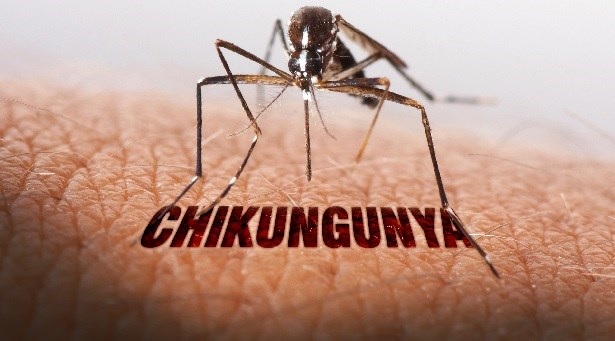
The Nigeria Centre for Disease Control and Prevention (NCDC) has issued a public health advisory urging Nigerians to remain vigilant against Chikungunya, a mosquito-borne viral disease, as global cases and deaths continue to climb.
The warning comes as the rainy season and widespread flooding increase the risk of mosquito breeding and potential outbreaks across the country.
According to the World Health Organization (WHO) and the European Centre for Disease Prevention and Control (ECDC), more than 240,000 Chikungunya cases and 90 deaths have been recorded in at least 16 countries so far in 2025. China alone has reported nearly 5,000 cases since early July, with Guangdong Province logging about 3,000 cases in a single week.
Chikungunya is transmitted primarily by Aedes aegypti and Aedes albopictus mosquitoes, which also spread Dengue and Yellow Fever. Unlike malaria-carrying Anopheles mosquitoes that bite mainly at night, Aedes mosquitoes bite during the day, especially in the early morning and late afternoon.
Symptoms include sudden fever, severe joint and muscle pain, headache, nausea, fatigue, and rash. While the disease is rarely fatal, joint pain can linger for months, significantly impacting quality of life.
NCDC Director General, Dr. Jide Idris, said no confirmed cases have been reported in Nigeria this year, but warned that the country’s environmental conditions, particularly in flood-affected communities, could create a fertile ground for an outbreak if preventive measures are ignored.
READ ALSO: NEMA Stages Flood Simulation in High-Risk Dukku Community to Bolster Disaster Readiness
K1 De Ultimate Tragedy incident: No One is above laws – FG kicks
“With global transmission on the rise and Nigeria’s climatic risks, now is the time for preventive action,” Dr. Idris stated.
The NCDC advised the public to eliminate mosquito breeding sites, use insect repellents, wear protective clothing, and seek medical attention promptly if symptoms develop.





